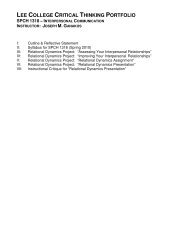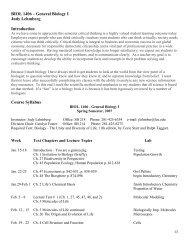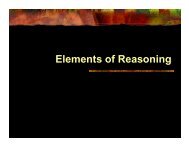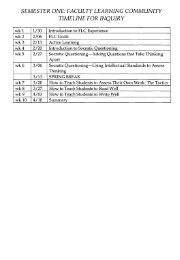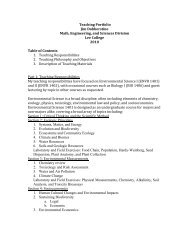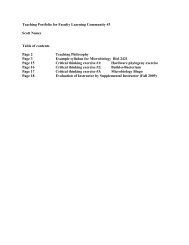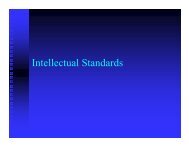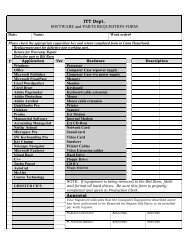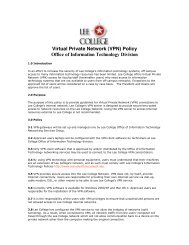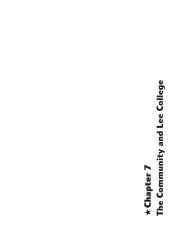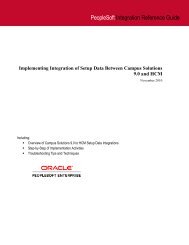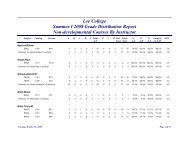Cheryl Willard - Lee College
Cheryl Willard - Lee College
Cheryl Willard - Lee College
Create successful ePaper yourself
Turn your PDF publications into a flip-book with our unique Google optimized e-Paper software.
Critical Thinking Concept #2:<br />
Correlation ≠ Causation<br />
Correlation research examines the relationship between two variables. A positive<br />
relationship exists if high scores on one variable are related to high scores on<br />
the other (or if low scores are related to low scores). An example of a positive<br />
correlation would be the amount of time spent studying and scores on an exam.<br />
A negative relationship exists if high scores on one variable are related to low<br />
scores on the other, such as the relationship between the amount of alcohol<br />
consumed and physical coordination skills.<br />
An advantage of the correlation method of research is that it allows for prediction. If<br />
there is a strong correlation between two variables, then knowing the value on one variable<br />
allows us to predict the other. I could predict, for example, that a student who seldom attends<br />
class will do poorly on an exam because there is a negative correlation between class absences<br />
and course grades. However, knowing that a relationship exists does not prove that one variable<br />
is the “cause” of the other. Correlation suggests the possibility of a cause-effect relationship, but<br />
it’s possible that other non-obvious factors may be involved. For example, a negative correlation<br />
has been demonstrated between self-esteem and depression (Myers, 2005). However, the<br />
sources and direction of causation are unknown.<br />
Depression may cause<br />
Low self-esteem may cause<br />
low self-esteem<br />
depression<br />
Self-esteem and depression may influence<br />
each other in a reciprocal fashion<br />
Brain chemistry may cause both<br />
Distressing events may cause both<br />
Depression<br />
low self-esteem<br />
and<br />
depression<br />
low self-esteem<br />
and<br />
depression<br />
low self-esteem<br />
Inferences refer to conclusions or judgments that are made about one thing based on the<br />
observations of something else (Paul & Elder, 2006). This exercise is designed to help students<br />
reason through correlation studies so that the inferences made are logical and justified by the<br />
research methodology.<br />
10



